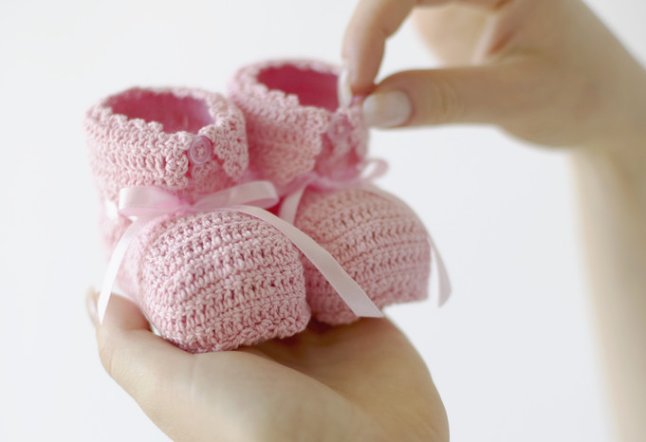
Wouldn’t you wish to give your baby the best start when he/she begins her life? Then the first and foremost thing you should do is to get your body in a perfectly healthy condition. In that way, it will not only help you to maintain a healthy and fit body but will also make your body prepare to conceive. This will increase your chances of pregnancy and will also assist in having a healthy pregnancy.

One of the best ideas, when you get pregnant, is maintaining an ideal weight. If you have a healthy weight, it will increase your chances of getting pregnant. A healthy Body Mass Index or BMI comes between 19 and 25. If you’re overweight, dropping some pounds will decrease the chances of certain health problems for you and your baby, particularly if your BMI is 30 or perhaps even higher. It may increase your fertility too. If you choose to follow a balanced diet and keep fit for now, it will also give you a good start to pregnancy. On the other hand, if you’re underweight, you need to speak to your doctor about healthy ways to raise your Body Mass Index. If you have a low body weight, then you’re more likely to have an infrequent menstrual cycle. This can make it difficult to conceive, especially if you’re missing periods.

Eating the right kind of foods and attaining nutrition through them is good. However, at some point in time, supplements will also play a significant role, and you may need to have them too. Folic acid supplements need to be taken as soon as you cease using contraception and begin to try for a baby – you must continue having them until the 12th week of pregnancy. A daily 400mc folic acid supplement is recommended, but if you have coeliac disease, diabetes or have previously had a baby with spina bifida, then you may require a higher dose. It’s especially important to have sufficient folic acid in the initial weeks of pregnancy. This is the time when the brain and nervous system of your unborn baby start to develop. You may not even understand that you’re pregnant at this point. And hence you should start taking folic acid as soon as you start trying.
Vitamin D is necessary- The one element that is important for you throughout the pregnancy and while you breastfeed, is Vitamin D. You can get this primarily from two sources: exposure to a right amount of summer sunshine, or foods such as oily fish along with fortified breakfast cereals. The Department of Health suggests you take supplements. All you need to have is ten micrograms of vitamin D every day.

Have you been trying for a baby for a while and haven’t succeeded? Then you are quite likely to start worrying and getting stressed. However, that is one of the worst ways to show your frustration. All you need to do is relax. When you start to stress out, you are likely to have a lack of sleep, which is linked to infertility. Therefore it’s essential for you to take rest and relax as much as possible.
Stress itself may not be the only cause of infertility (although if it induces you to miss periods, you won’t be ovulating) it is connected with behaviours which can affect your chances of conceiving – like eating badly, weight gain or weight loss and insomnia.

If you are planning to conceive, then you need to quit smoking and drinking alcohol. This is because it can both cause severe health problems for your baby if at all you conceive. They also increase your risk of miscarriage. And there isn’t a single illegal drug that’s safe for pregnant women and their babies. You will not understand that yo are pregnant straight away. Therefore, it is always best to quit smoking and drinking as and when you take a decision to conceive. Quitting smoking can be hard, but you’re up to four times more likely to succeed with the right help. Your GP will be pleased to refer you to your local stop smoking services, who will work with you to develop a tailored plan to help you quit. When it comes to alcohol, the safest thing is to avoid it altogether. There is no way to know how much alcohol is safe during pregnancy.

Rubella (German measles) is generally a mild illness. Nevertheless, if you are pregnant and get rubella, it can cause severe damage to your unborn child. Before your first pregnancy, you should conduct a blood test to verify if you are immune to rubella. If you are not immune, make sure you immunise before becoming pregnant.

If you have any medication or even herbal remedies – prescribed or not – it’s always best to ask your GP if they could harm your fertility or your baby’s development. If you’re taking prescribed medication, then don’t stop taking them without speaking with your doctor first.

Pre-existing medical conditions such as Polycystic Ovary Syndrome or PCOS, endometriosis, thyroid dysfunction, inflammatory bowel disease, epilepsy and diabetes have to be discussed with your GP while you are preparing for a baby. Some health conditions do need careful management to minimise risks to both mum and baby. It could influence the judgments you make, for example, how to increase your chances of conceiving, right through to where to give birth.

If you’re pregnant or even thinking about conceiving and need a healthy baby, then it’s very necessary to withdraw drug use during pregnancy. Illegal drugs like cocaine, marijuana and methamphetamine aren’t the only drugs that are dangerous to foetal development; commonly used over-the-counter medicines, along with substances like caffeine and alcohol, can also have lasting effects on an unborn child. They can seriously impact fertility, cause miscarriage, low birth-weight and premature babies. They can also affect sperm quality too.
It is the most powerful creation to have life growing inside of you.There is no bigger gift